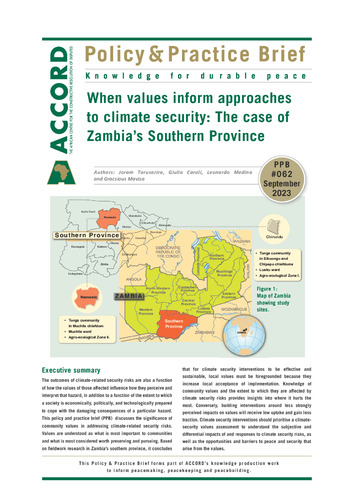When values inform approaches to climate security: The case of Zambia’s Southern Province
The outcomes of climate-related security risks are also a function of how the values of those affected influence how they perceive and interpret that hazard, in addition to a function of the extent to which a society is economically, politically, and technologically prepared to cope with the damaging consequences of a particular hazard. This policy and practice brief (PPB) discusses the significance of community values in addressing climate-related security risks. Values are understood as what is most important to communities and what is most considered worth preserving and pursuing. Based on fieldwork research in Zambia’s southern province, it concludes that for climate security interventions to be effective and sustainable, local values must be foregrounded because they increase local acceptance of implementation. Knowledge of community values and the extent to which they are affected by climate security risks provides insights into where it hurts the most. Conversely, building interventions around less strongly perceived impacts on values will receive low uptake and gain less traction. Climate security interventions should prioritise a climate-security values assessment to understand the subjective and differential impacts of and responses to climate security risks, as well as the opportunities and barriers to peace and security that arise from the values.

